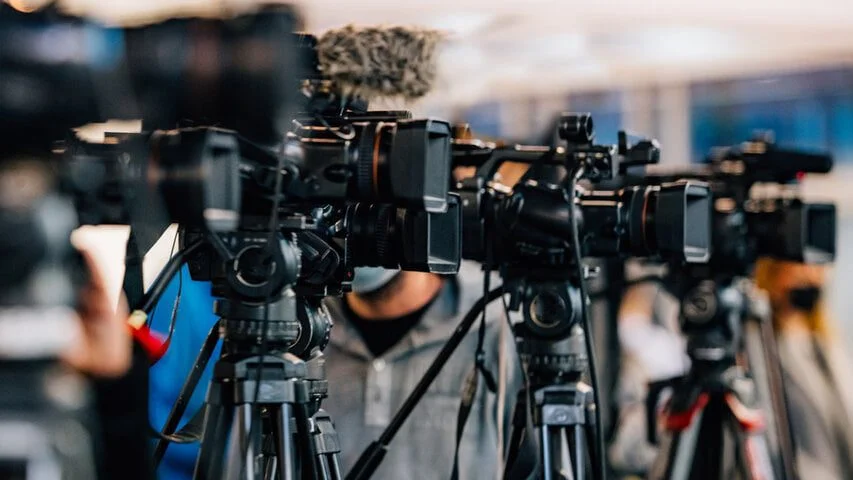You’re standing in front of an audience. The lights are on. Your heart’s racing. The silence is louder than you imagined.
And suddenly… You forget your next line, your chord progression, or your punchline.
Now what?
If you’ve trained in improvisation, you won’t freeze.
You’ll flow.
That’s the power of improv—it gives you the confidence to keep going, even when things go off-script.
Whether you’re an actor, musician, comedian, dancer, or speaker, improvisation can transform the way you show up on stage.
Here’s how to use it to build confidence, stay grounded, and create unforgettable live performances.
🎤 Why Improvisation is a Confidence Superpower
Improv isn’t just a comedy skill or acting warm-up—it’s a mindset.
When you practice improv, you develop:
Quick thinking under pressure
Emotional flexibility
The ability to recover from mistakes
Real-time audience connection
Instead of fearing the unexpected, you start to welcome it.
You stop obsessing about being perfect, and start trusting yourself to be present.
That shift is what builds real, unshakable confidence.
🧠 Improv Rewires Your Brain for Performance
Performers often fear live mistakes because they feel like failures.
But improv teaches you:
Mistakes aren’t failures. They’re opportunities.
Some of the most memorable moments on stage happen when things don’t go according to plan—and you respond with grace, humour, or creativity.
Improv helps you:
Loosen your grip on control
Embrace spontaneity
Tune in to the audience and your fellow performers
And that relaxed state is where authentic, powerful performance lives.
🎯 5 Ways to Use Improvisation to Build Confidence on Stage
1. Warm Up with Improv Before You Perform
Even 5–10 minutes of quick improv games before a show can:
Calm your nerves
Get your brain firing creatively
Remind you it’s okay to play and explore
Try these pre-show games:
“Yes, And…”
Character switching (act a line in multiple moods)
Gibberish conversations (non-verbal communication focus)
Warming up your spontaneity muscle primes your body and brain for flow.
2. Practice “What If Everything Goes Wrong?”
Instead of trying to avoid mistakes, simulate them on purpose in rehearsal.
Example:
Skip a line and improvise a transition
Drop a prop and recover in character
Let your scene partner surprise you with something off-script
When you train for chaos, you become calm in chaos.
This makes you less fearful of the unknown and more confident in your ability to adapt.
3. Turn Audience Reactions Into the Scene
The best performers respond to the moment, not just their script.
If someone sneezes mid-monologue? Acknowledge it.
If a mic slips, laugh it off.
If someone claps early, lean into it.
These unscripted moments give you a chance to connect and showcase your professionalism.
Improv teaches you not to fear audience reactions, but to dance with them.
4. Improvise Inside Structure
Improv doesn’t mean abandoning preparation—it means knowing your material so well that you can play within it.
As a speaker, add spontaneous anecdotes when relevant.
As a musician, Freestyle within a chord progression.
As an actor, respond to your scene partner’s unique energy each night.
That blend of structure + spontaneity is where confident stage presence shines.
5. Use Improv to Rebuild After a Flub
Flub a line? Miss a cue? Blank out?
Instead of panicking or apologising, use an improv trick:
Stay in character
Make a bold choice to keep going
Add a pause, a laugh, or a new line that fits the tone
Often, the audience won’t even notice.
And if they do? They’ll admire how confidently you handled it.
That’s what turns you from a good performer into a magnetic one.
🧘♀️ Improv Builds Emotional Resilience
At its core, improvisation trains your emotional flexibility—your ability to stay grounded and engaged even when things feel uncertain.
Over time, that reduces:
Performance anxiety
Perfectionism
Fear of judgment
And builds:
Trust in your instincts
Comfort with uncertainty
Joy in the process
When you stop fearing the unknown, you start enjoying the ride.
💬 A Real-World Example
I once watched a singer forget their lyrics during a live acoustic show.
She paused, grinned, and said:
“I just wrote that verse in my head. You like it?”
The crowd laughed. She kept going.
It turned into a beautiful moment of connection.
That wasn’t luck. That was improv confidence—the ability to turn panic into presence.
🛠️ How to Practice Improv on Your Own
Even if you don’t have a troupe or class, you can still build your improv chops solo:
Record yourself doing character monologues in different moods
Tell a made-up story using 3 random words
Perform your set/piece while intentionally improvising a section
Practice responding to imaginary hecklers or tech fails
The more you play, the more natural confidence feels.
🧠 Final Thoughts: Improv is a Mindset—Not Just a Skill
Using improvisation in live performance isn’t about being funny or clever all the time.
It’s about:
Staying grounded in chaos
Embracing the moment over perfection
Trusting yourself when the unexpected happens
The truth is, no performance ever goes 100% as planned.
But with improv in your back pocket, you don’t need it to.
You’ll show up confidently. React gracefully.
And maybe even discover your best moments by accident.
Don’t aim to control the stage.
Aim to own the moment.
And let the rest unfold.


.jpg)










Recent Comments
No comments yet.